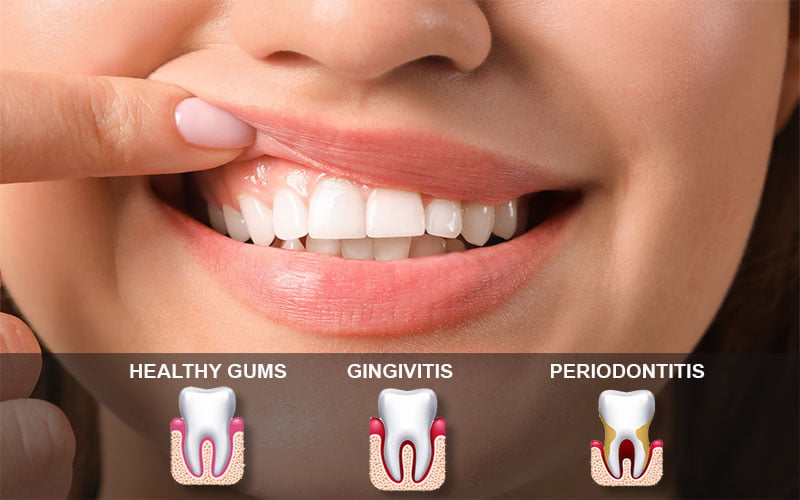
Maintaining healthy gums is crucial for overall oral hygiene and a confident smile. You’re not alone if you’re wondering how to cure gum disease without a Dentist. Many people seek natural alternatives to complement their oral care routine. In this comprehensive guide, we’ll delve into effective methods and remedies that can help you address gum disease at home.
How to cure Gum disease without a Dentist prescription is easy if we understand its importance. Gum disease also known as periodontal disease, is an infection of the gums that can lead to discomfort, bleeding, and even tooth loss if left untreated. While professional dental care is essential, there are several natural approaches you can incorporate into your routine to improve gum health.
Maintaining proper oral hygiene is key to preventing and managing gum disease. Here are some essential tips to follow:
Several natural remedies can assist in treating gum disease without visiting a dentist:
Tea tree oil has natural antibacterial properties. Dilute a few drops in water and use it as a mouthwash to help reduce gum inflammation.
Aloe vera has soothing and anti-inflammatory properties. Apply pure aloe vera gel to your gums to alleviate discomfort.
Turmeric’s anti-inflammatory and antimicrobial properties make it an effective remedy. Create a paste using turmeric and water, and gently massage it into your gums.
A mixture of salt and baking soda can help neutralize acids in the mouth and promote healing. Use it as a gentle scrub for your gums.
Beyond specific remedies, certain lifestyle changes contribute to better gum health:
Caring for your gums is essential for your overall well-being. By following these natural remedies and lifestyle changes, you can significantly improve your gum health. Remember that while these approaches can be beneficial, regular dental check-ups are still crucial for maintaining optimal oral health.
A: While these methods can help manage gum disease, professional dental care is vital for a comprehensive treatment plan.
A: Results can vary, but with consistent use, you might notice improvements within a few weeks.
A: Most natural remedies are safe, but it’s a good idea to consult with a healthcare professional before trying new treatments.
A: Yes, you can combine different remedies, but start with one and monitor how your gums respond.
A: Regular dental check-ups are still essential, so continue seeing your dentist as recommended.
Recommended other topics: What Type of Cancer Causes Low Hemoglobin










© InfoDoot. All Rights Reserved.